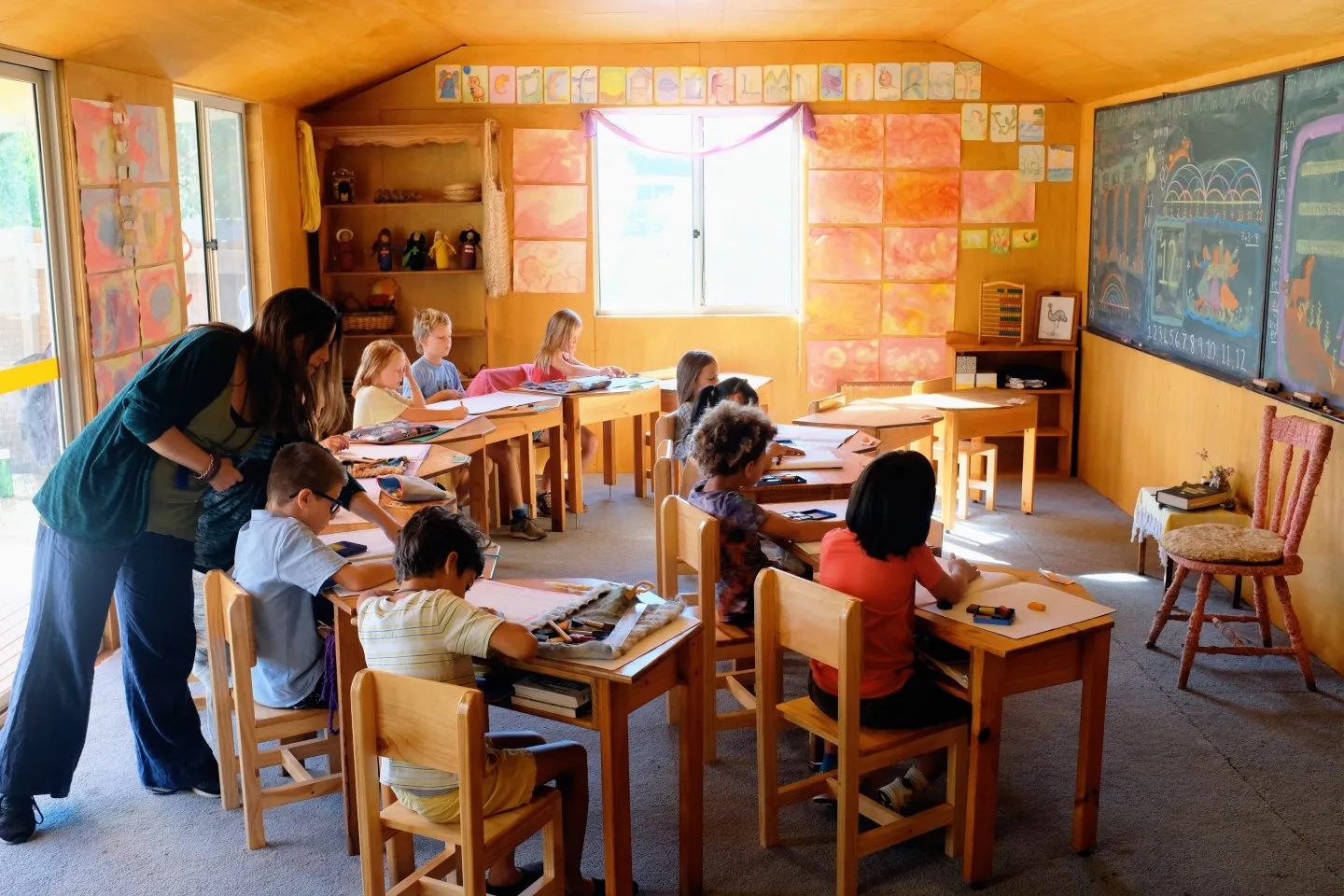
Steiner Education: A Holistic Approach to Nurturing Young Minds
Steiner Education, also known as Waldorf Education, is a progressive educational system founded by Austrian philosopher Rudolf Steiner in the early 20th century. This approach focuses on the whole development of a child—intellectual, emotional, and spiritual. Steiner Education provides a unique and nurturing environment that supports creativity, independent thinking, and emotional growth, alongside traditional academic skills.
In this article, we will explore the core principles of Steiner Education and the many benefits it offers to children. We will also delve into the methodologies that make this approach stand out, offering a comprehensive understanding of this innovative educational philosophy.
What is Steiner Education?
Steiner Education is an educational philosophy that emphasizes the development of the whole child. Unlike conventional schooling, which often focuses solely on academic performance, Steiner Education considers the cognitive, emotional, and physical aspects of a child’s growth. The curriculum is designed to engage and stimulate students at various developmental stages, ensuring that each child’s individual needs are met.
One of the key aspects of Steiner Education is its focus on creativity and imagination. Through artistic activities such as painting, music, and drama, children are encouraged to express themselves freely and develop critical thinking skills. This is in stark contrast to the often rigid structure of traditional schooling.
Core Principles of Steiner Education
1. The Developmental Stages of the Child
Steiner Education is built on a deep understanding of child development. The system is divided into three main developmental stages:
- Early Childhood (0-7 years): At this stage, the focus is on nurturing the child’s physical development through play and imitation. Children are encouraged to explore their environment and learn through sensory experiences.
- Middle Childhood (7-14 years): As children enter their second stage of development, the curriculum begins to focus on fostering emotional intelligence, creativity, and social skills. Hands-on learning becomes a key component, with subjects like art, crafts, and nature studies playing an important role.
- Adolescence (14-18 years): In this final stage, the focus shifts towards developing the intellectual abilities of the student. Critical thinking, abstract reasoning, and academic subjects such as mathematics and science are introduced. However, they are integrated into a broader, holistic curriculum that encourages independent thought and self-discovery.
2. Integration of Arts in Education
In Steiner schools, the arts are not just extracurricular activities; they are deeply woven into the academic curriculum. Subjects like literature, history, and science are taught with artistic expression at their core. This approach helps students connect more meaningfully with the material, as creativity and imagination are encouraged at every step of their educational journey.
Through artistic disciplines, children develop their emotional and cognitive abilities. This focus on the arts provides students with opportunities to think critically and develop a deeper understanding of their subject matter, making the learning process both engaging and memorable.
Benefits of Steiner Education
1. Fosters Creativity and Imagination
One of the standout features of Steiner Education is its focus on creativity. This is essential, as it encourages students to think outside the box, problem-solve, and engage in artistic expression. Through storytelling, drama, and music, children are encouraged to tap into their imagination, allowing for a more enriched learning experience.
2. Promotes Emotional and Social Growth
Steiner Education places significant importance on emotional intelligence and social development. The curriculum nurtures a child’s ability to understand their emotions, relate to others, and navigate interpersonal relationships. This holistic approach ensures that students are not only academically capable but also emotionally well-adjusted.
3. Individualized Learning
In Steiner schools, education is not a one-size-fits-all model. Teachers work closely with each student to understand their unique strengths, challenges, and learning styles. This individualized approach helps children thrive and ensures they receive the necessary support to succeed, both academically and personally.
4. Connection to Nature
A core element of Steiner Education is the strong emphasis on connecting children to nature. Outdoor activities and nature-based lessons help foster an appreciation for the environment and encourage environmental stewardship. Students regularly engage in outdoor lessons, which not only support their physical development but also promote well-being and mindfulness.
Why Choose Steiner Education?
The benefits of Steiner Education extend far beyond the classroom. Parents who choose this educational path for their children are often drawn to the values of independence, creativity, and emotional development that Steiner Education promotes. The approach also encourages lifelong learning and a deep appreciation for the arts, nature, and intellectual inquiry.
Steiner Education helps children become well-rounded individuals who are prepared for the complexities of the modern world. Through its commitment to developing the intellectual, emotional, and physical capacities of children, it fosters resilience, self-confidence, and a deep sense of responsibility.
Frequently Asked Questions (FAQs)
Q1: Is Steiner Education suitable for all children?
Yes, Steiner Education is suitable for children with various learning styles. The personalized approach ensures that each child receives the support they need for academic and personal growth.
Q2: How does Steiner Education differ from traditional education?
Unlike traditional education, which emphasizes standardized testing and academic achievement, Steiner Education focuses on the holistic development of the child, including creativity, emotional intelligence, and social skills.
Q3: What subjects are taught in Steiner Education?
The curriculum is broad and includes subjects such as literature, mathematics, history, science, arts, crafts, and physical education, all integrated in a way that supports the child’s development at each stage.
Q4: What role do teachers play in Steiner Education?
Teachers in Steiner schools are seen as mentors who guide the child’s development and tailor the learning experience to each student’s unique needs and pace.
Q5: Can children transition from Steiner Education to traditional schools?
Yes, many children successfully transition to traditional schools. However, the transition can sometimes require additional support to adjust to the different structure and expectations of conventional education systems.